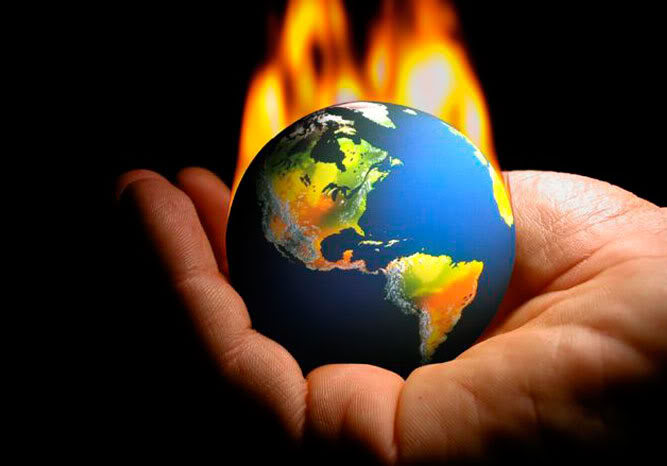Hurricane Patricia headed toward southwestern Mexico yesterday, as a monster Category 5 storm, the strongest ever in the Western Hemisphere that forecasters said could make a "potentially catastrophic landfall" later in the day, according the latest reports. The hurricane is expected to bring accumulated rains ranging from 6 to 12 inches which could easily produce "life-threatening flash floods, mud slides (especially in areas of mountainous terrain), and high winds up to 130 m.p.h.," NOAA warns.
Well, this hurricane is one more extreme wether phenomenon and there are a lot of great research papers for the relation between climate change and extreme weather phenomena (this is one I like a lot by the Norwegian Meteorological Institute). And as much as we are preparing our cities to adapt themselves in the new emerging climate patterns, as much we should realise that waste management and recycling patterns will be certainly affected a lot by the climate change policies and science.
Obviously, a first influence regards the financial resources: already there are a lot of funds available for waste management activities related to GHGs reduction (have a look at Climate Funds Update for more).
Another, also obvious trend regards the global cooperation required for fighting climate change - it seems that we are on the way for a new agreement in Paris. Countries have agreed that they would adopt a new climate agreement in 2015 at the Paris Climate Conference this December. The Paris 2015 Conference needs to result in the adoption of an international agreement, setting the framework for a transition towards resilient, low-carbon societies and economies. The Conference has the potential to mark a decisive step forward in the negotiation of the future international agreement that will enter into force in 2020, with the aim that all countries, including the greatest greenhouse gas emitters – both developed and developing countries – should be bound for the first time by a universal climate agreement.
In case this global agreement is achieved, then there will be a lot of new instruments to motivate GHGs reduction and certainly waste management sector will benefit of them. As an idea of the actual expectations and intentions of the recycling and waste management industry, the recent ISWA's Declaration on Climate Change and Waste Management provides a brief but thoughtful overview.
But there are further, not so obvious impacts.
Globalisation of environmental impacts: GHGs and marine litter are the most obvious ways to highlight that local SWM has a global environmental footprint. Under the current conditions and the global political agenda about Climate Change, the link between SWM and GHGs is the most important tool to create a universal understanding for how our local decisions in SWM contribute to global phenomena.
GHGs and the sense of time: human beings tend to underestimate or even ignore the importance of events that are out of their natural time scale. GHGs impacts are also a very good example in order to prove how previous and current SWM practices create Long Term results which substantially deteriorate the life of future generations.
GHGs and developing countries: I think that the global agenda for GHGs provides a unique opportunity to rethink the way international aid or Official Development Assistance (ODA) is distributed - there are many problematic situations at this field and the most important ones are two. A. the overall amount of ODA related to waste management is ridiculously small (less than 0.3% of the overall ODA) and, B. the poorest countries receive much less support than the developing to developed ones. This has been proven by a report that was made within the framework of the "Globalisation and waste management" project that was implemented by ISWA - for more check "A review of international development cooperation in Solid Waste Management". If we are going to fight seriously the Climate Change, if we are going to prepare substantial adaptation and mitigation plans, then certainly we need to change completely the way ODA is managed.
And last but not least is the challenge of adaptation, which is certainly underestimated when we speak about waste management. I have written again about it, but unfortunately nothing has changed. It seems that the most vulnerable waste management systems are the ones that happened to be in growing and transition megacities, where informal sector plays a certain role in waste management and infrastructure either is not in place or it is not adequate. In those urban areas, the environmental and health risks from a potential disaster related to waste management are really high and under certain conditions they might be proven more than local ones. Take into account that dumpsites, which are the dominant practice in those cases, are usually located at low levels and excavated with no plan and hydraulic protection and you will understand that this is a serious problem.


No comments:
Post a Comment